5 Great Ways to Develop as an Artist & Photographer
Over the course of your career as a photographer, whether you’re an amateur or a professional, you’re bound to come across situations that change you and provide you with the opportunity for growth.
These are the moments you can seize to really develop as a photographer and, more broadly, as an artist.
Other times, you can develop simply by deciding to try something new or taking something habitual and turning it into a new direction. The most important part of growing as an artist and photographer lies in being dynamic. Never stop experimenting, thinking, exploring and learning. If you adopt the following tactics, then you’re certain to grow.
1. Take on Various Photography Projects
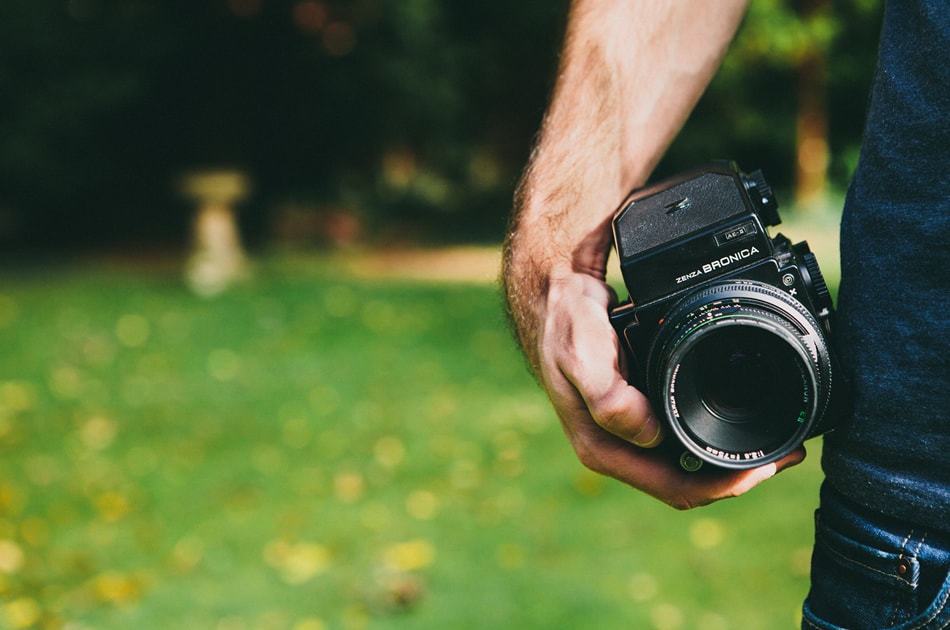
There are different, interesting projects you can try if you’re serious about developing in your career. Let’s start from the more basic tactics and then work our way up!
Try a 52-week creative project. As the name implies, this ties into the weeks of the year: Take a new photograph for every week of the year and then share it with the world. You can share it with friends, family and social media. Not only will taking a new image each week sharpen your photography skills, but it’ll also help you appreciate your life as an artist since you get to see how your creativity morphs from week to week.
If you’re feeling excessively more ambitious, you can also do a 365 project, which takes the same concept, but urges you to practice it every day! With this project, expect to hone your skills much more efficiently and get an even clearer snapshot (literally!) of your life as an artist. Or you could invent your own project, like the locked room project.
Then there’s the personal project. It’s supposed to be highly meaningful only to you—don’t do it to live up to anyone’s or society’s expectations. The growth potential here is likely strongest of all since you’re really looking inward into your artistry. Personal projects can be anything as kooky as taking pictures of your feet (or other body part) for years and years or making a compilation of all your best travel pictures from all of your life’s vacations. Your choice entirely.
2. Get a New Lens
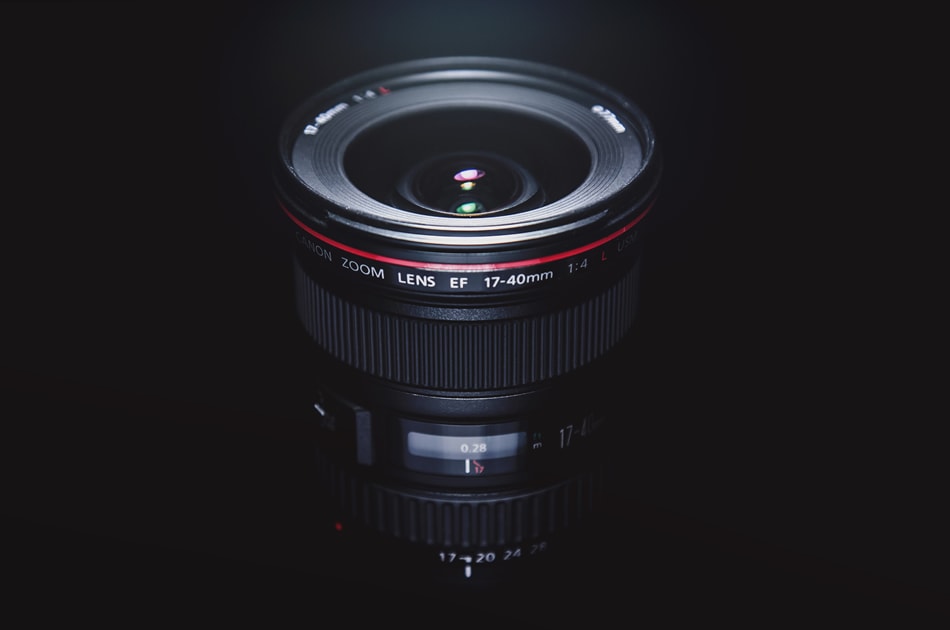
Photographers tend to see the world through their lenses. By trying out a new lens, you don’t just become familiar with new equipment; you also get a bunch of new, creative opportunities and get to admire how they your lens changes around your images.
Getting a new lens doesn’t have to be pricey or hard. Yeah, you sure can buy a new one, which is the fastest option. There are also other avenues, though. Is there a photography rental shop close to your home or darkroom? If there is, you can always just rent out a lens for a few days and see the results you get.
How about this? If you have friends or family members who are also into photography, just ask to borrow their lens for the weekend.
3. Partner up!
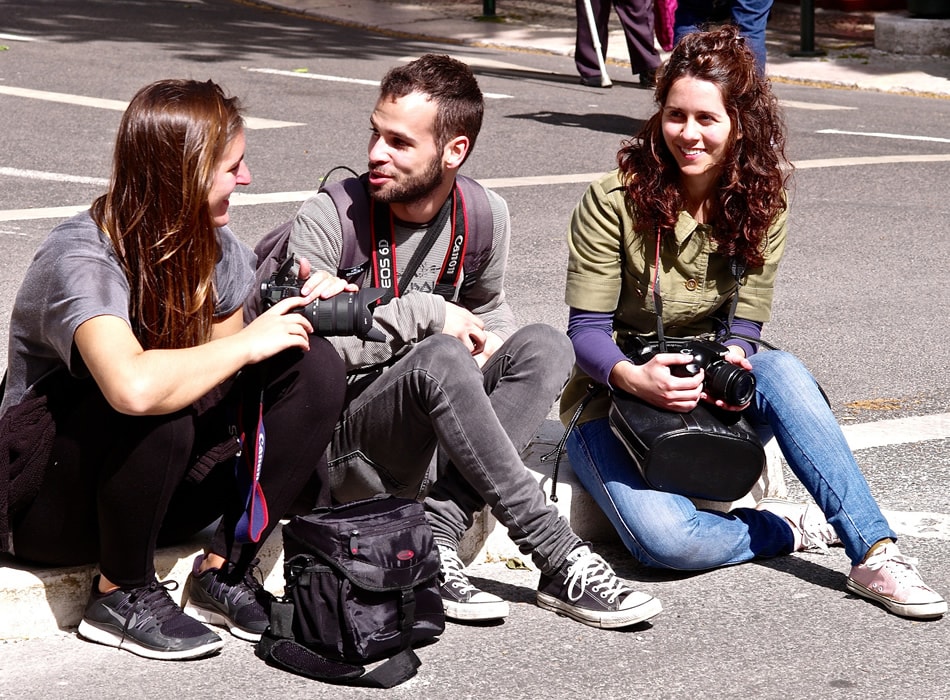
Photo by Jeremy Keith
When you get a photography partner or pal, you have somebody to accompany you on your shoots. This can turn into very valuable advice and feedback that comes in the form of encouragement, tips and spotting things you perhaps couldn’t see all on your own.
Of course, the benefit to having a partner is also that he or she can challenge you. Getting healthy challenges and taking on new photography dares from time to time will provide opportunities for growth because you’re exploring new, unchartered territory.
Finally, having a partner also means accountability. By having somebody you’re organizing and planning shoots with, you at least get the ball rolling toward regularly snapping photographs, which will keep your creative juices flowing and your skill set always sharp.
4. Plan Some Photography Meet-ups
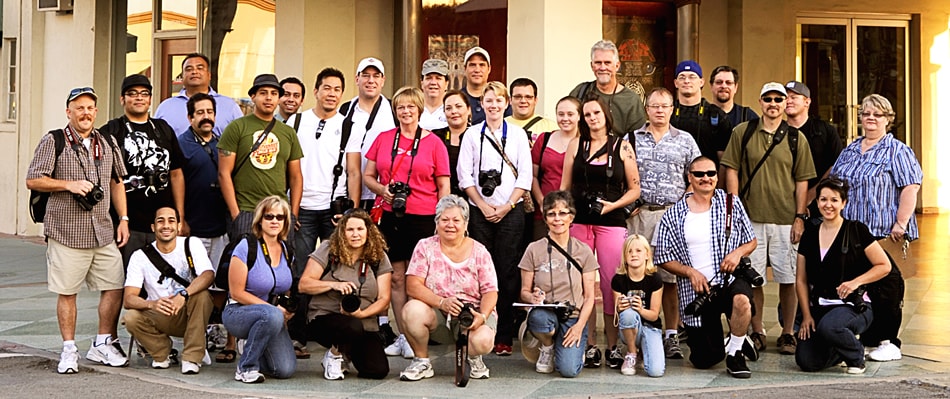
Photo by Alan Antiporda
Meet-ups are quite popular for different activities, from everything from political get-togethers to day trips. So why not also for photography enthusiasts and photography excursions?
It’s true, photography meet-ups can rebuild your inspiration or give you brand-new inspiration, depending on how drained you are from years of being a photographer. Just as vital, however, is that they can create a local community of photographers who form deep bonds with one another. Think of this as your photographers’ support group!
When you have a group like this that you can always approach and talk all things photography with, it can become very beneficial for you. You can share your equipment with each other, pass on referrals and clients, and trade info on some local locations that have been scouted.
Don’t think for a second that photography meet-ups have to take place in a specially designated clubhouse or headquarters. Meet-ups can happen in your local coffee shop and library. The important thing is to just get fellow photographers together for support and information sharing.
5. Attend Gallery Exhibitions
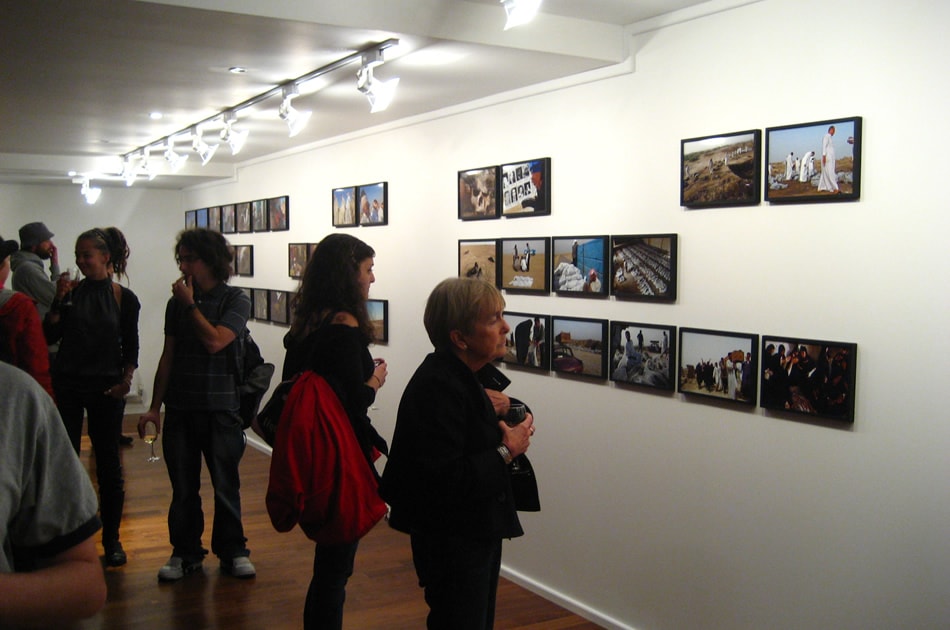
Photo by Pedro Ribeiro Simões
Going to gallery exhibitions need not be the activity of old people and socialites. If you’re a photographer, you can pick up a lot of inspiration and develop as an artist from the exhibitions that you take in. Gallery exhibitions are also getting more affordable for the average photographer to attend.
Think of these events as a physical slideshow instead of a virtual one that you view on your iMac or tablet. By going from one to the next, you get to physically take in different images, which gives you a new perspective from just looking at images in an album or online.
After all, if you’re not shooting images, then it’s good for your development to take in as many as you can.
Growth From Many Places
As photographers, you go through various stages of your career, whether you’re an amateur or a professional. Because you’re dynamic in this way, this also means how rife photography is for opportunities at growth.
The above list of ideas for self-development is by no means complete, yet it’s still a wonderful starting point of suggestions from which you can go further. Some of you may have even already tried some of the tips in this article, which just means you’re already on the path to artistic development!
From here, keep trying new things and don’t hesitate to take chances that involve experimentation and exploration.
